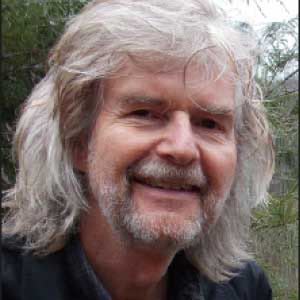More than 100 people from all over the diocese and even as far as India met online on Oct. 30 for the annual Outreach and Advocacy Conference to learn, be inspired and discuss strategies for addressing issues facing our society. Workshops and a keynote address underscored the conference theme of “Re-membering and Re-making Community.”
In his welcome and opening prayer, Bishop Andrew Asbil said he has been “deeply moved by how social justice and advocacy has continued to sow peace and joy” throughout the diocese, despite the pandemic.

The Rev. Claudette Taylor recounted the well-known story from Ezekiel about God breathing new life into old bones (Ezekiel 37:1-14). The Rev. Gerlyn Henry, assistant curate at St. Timothy, North Toronto, picked up on that theme in a powerful, wide-ranging keynote address. In an opening prayer she implored God to “make us a people who behold, cherish and embody your promise as our dry bones shake us in uncertain times. We fall asleep to the sound of bones rattling; would you wake us with your breath? Give us the strength and courage to re-member and re-make community.”
Ms. Henry noted that Ezekiel knew what it was like to grow up in a community detached from its people and sense of identity. We’ve also experienced a sense of exile through the pandemic — but one that has heightened the inequalities of our society. For example, migrant farm workers were at least 10 times more likely to contract COVID-19 than the overall population. Homeless people have been more than 20 times as likely as the general population to be hospitalized with the virus.
“If Ezekiel were a prophet today and the spirit of God took him to a valley of bones, I think the bones would represent those we have omitted or forgotten. Tired bones of migrant workers far from their families. Symptomatic bones carrying the virus to work because Ontario didn’t approve sick days. They are bones of Indigenous children hidden six feet under, and bones crushed by empires that make billions of dollars while a billion people make less than a dollar a day,” said Ms. Henry.

“The first step to meaningful outreach and advocacy is bearing witness and truth-telling. Ezekiel stands in the midst of these dry bones and he bears witness. How do we bear witness to the things we are seeing in our communities? How do we share stories and encourage the naming of truth?”
Ms. Henry noted that God says in this passage, “I will cause breath to enter you and you shall live.” She then wondered about the people being re-made from these bones. Were they all the same? Very likely, there were a range of people in the crowd in terms of age, gender, diversity and ability. “The language that we hear is communal. I don’t think the point was for these individuals to stand strong and confident on their own two feet. No, the invitation by God is for the bodies to support one another in standing tall, and to uphold one another in reclaiming who we are.”
This teaching has strong implications for us as the pandemic winds down, said Ms. Henry. “God’s invitation has never been to return to business as usual. We begin to re-make meaningful community in and after this pandemic by using this experience as a resource. Trusting the work of those who have been calling for justice,” she said.
She urged participants to remember that they possess a tremendous amount of knowledge that can be used, with the spirit of God, to imagine different realities. “In this pandemic many of us felt as if our bones dried up and our hope was lost. But we belong to God, and it’s through the Spirit of the God who lays sinew on bone that we stand leaning on one another, alive in a vast multitude. Trust the collective knowledge that has risen out of this pandemic,” she said.
After the keynote address, participants learned about a range of social justice issues at workshops. A “Justice for Workers” workshop zeroed in on the challenges faced by low-income workers, countering the view that higher minimum wages cause severe economic harm. After Ontario raised the minimum wage from $11.65 to $14 per hour in 2018, 130,000 new jobs were created. Workshop leader Pam Frache highlighted that people of colour working in offices, warehouses, manufacturing and food industries have been most at risk from COVID-19. Ontario’s failure to enact paid sick days has meant that many of them go to work sick because they can’t afford to lose a day’s pay. “When we don’t protect the workplace, we ourselves are not protected. We have to protect each other,” she said.
Fair treatment for migrant workers was the focus of a workshop led by the Rev. Augusto Nunez, who leads a ministry for migrant workers in Durham Region, as well as being priest-in-charge at St. Saviour, Orono. These workers often struggle with loneliness, mental health issues and language barriers. The Durham Region Migrant Worker Ministry helps these workers from Mexico and the Caribbean in practical ways, such as providing meals, social gatherings and bicycles so workers living on isolated farms can get around. They are also supported in their faith through worship services. “Jesus is our foundation,” said Mr. Nunez.
Participants in a workshop on affordable housing heard how people of faith, both Christian and non-Christian, countered local hostility to a housing project for refugees in Toronto’s Willowdale neighbourhood by speaking out in support of the project. “People of faith must talk about the moral imperative to deal with justice issues,” said Jesse James, workshop leader. “It makes those opposed think about the issue in a different way.”
Other workshops dealt with transgender ministry, refugee sponsorship, renewing church lands and watershed discipleship.
Murray MacAdam is a member of St. John the Evangelist, Peterborough.





John takes us back to beginning